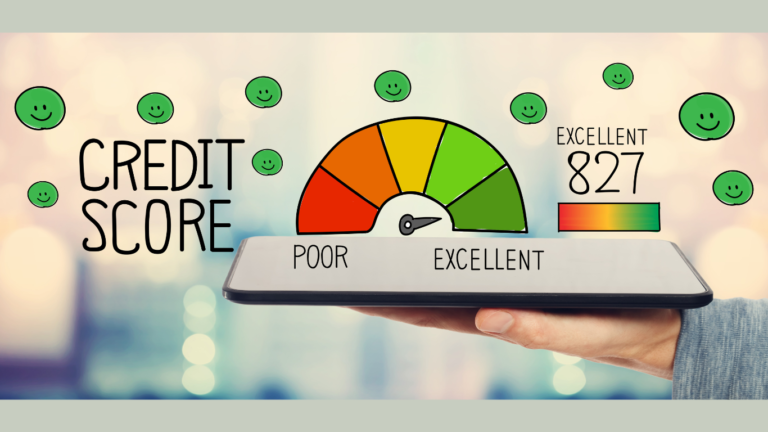When it comes to improving or maintaining a good credit score, many consumers often wonder: Does carrying a balance on my credit card help my credit score? It’s a common misconception that keeping a balance from month to month can boost your credit score. While this might seem logical, especially with the idea that paying off only a portion of the bill shows lenders you’re responsibly managing debt, the truth is actually quite different. Let’s delve into how carrying a balance affects your credit score in India and why it’s not necessarily beneficial.
Understanding How Credit Scores Are Calculated
Before we dive into the specifics, it’s essential to understand how your credit score is determined. In India, credit scores are calculated by credit bureaus such as CIBIL, Experian, and Equifax. The score ranges from 300 to 900, with higher scores indicating better creditworthiness. Your score is impacted by several factors:
- Payment History (35%): This includes whether you’ve paid your bills on time.
- Credit Utilization (30%): The amount of credit you’re using versus the credit available to you.
- Length of Credit History (15%): How long you’ve had credit accounts open.
- Credit Mix (10%): The diversity of credit accounts you have (e.g., credit cards, loans).
- New Credit (10%): Recent inquiries or new credit accounts opened.
The Myth of Carrying a Balance
Many people believe that carrying a balance on their credit card demonstrates responsible credit usage, as they think it reflects that they’re “actively” using credit and repaying it regularly. However, this is a myth.
Carrying a balance from month to month can actually hurt your credit score for several reasons:
- High Credit Utilization: Your credit utilization ratio is a significant factor in calculating your credit score. This ratio is determined by dividing your outstanding balance by your credit limit. Ideally, you should keep this ratio below 30%. For instance, if your credit limit is ₹100,000, your balance should ideally be ₹30,000 or less. Carrying a large balance leads to a high credit utilization ratio, which signals to creditors that you’re dependent on credit and may be at higher risk of defaulting.
- Interest Charges: When you carry a balance, you incur interest charges, which can compound quickly if you’re only making minimum payments. Over time, this leads to growing debt that can make it harder to manage your finances and lower your creditworthiness.
- Impact on Credit Score: The higher your outstanding balance, the lower your credit score will be, even if you’re making timely payments. High utilization rates can reflect financial stress, making it harder for lenders to see you as a responsible borrower. A lower credit score can result in higher interest rates on future loans or even getting denied for credit altogether.
What Happens When You Pay Your Balance in Full?
On the other hand, paying your balance in full each month has numerous benefits for your credit score and financial health:
- Improved Credit Utilization: Paying off your balance regularly ensures your credit utilization ratio remains low, which is favorable to your credit score.
- No Interest Charges: By clearing your balance before interest starts accruing, you avoid paying unnecessary fees and interest charges, keeping your debt manageable.
- Positive Payment History: Timely payments and low credit utilization are signals to credit bureaus that you are a responsible borrower. This helps to build and maintain a strong credit score over time.
What Should You Do to Boost Your Credit Score?
Rather than carrying a balance, focus on the following strategies to improve your credit score:
- Pay On Time: Always make sure you’re paying at least the minimum payment by the due date. Late payments can drastically hurt your credit score.
- Keep Your Credit Utilization Low: Try to keep your credit utilization ratio below 30%. If you need to make large purchases, consider paying off the balance as soon as possible or spreading the payments across multiple cards.
- Use Credit Regularly: While carrying a balance isn’t beneficial, using your credit cards for regular purchases and paying them off on time shows that you’re actively managing your credit.
- Avoid Opening Too Many Accounts: Frequently opening new credit accounts can hurt your score by shortening your average credit history. Only apply for new credit when necessary.
The Bottom Line: Carrying a Balance Isn’t Helpful for Your Credit Score
While the idea of carrying a balance might seem like a responsible credit habit, it’s actually one of the worst things you can do for your credit score. A high balance increases your credit utilization ratio, negatively impacting your score, and you’ll likely pay interest on that balance, making your debt harder to manage.
Instead, focus on paying off your credit card in full each month, keeping your credit utilization low, and making timely payments. By doing so, you’ll gradually improve your credit score, making it easier to qualify for loans with favorable terms in the future.









